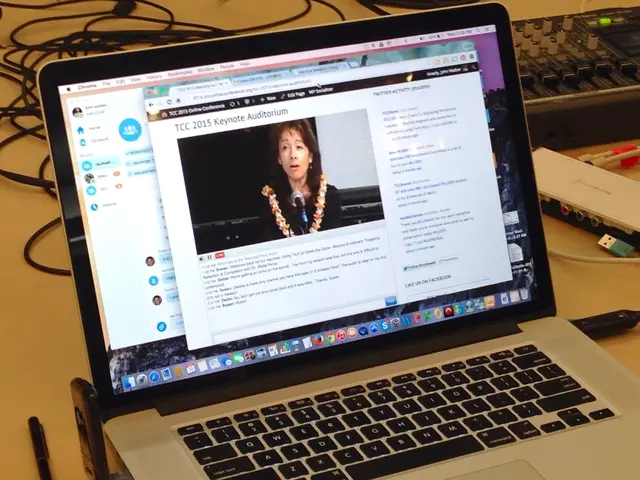Language Acumen: Distinct Features, Sample Uses, and Exercises to Enhance It
In the realm of human intelligence, linguistic intelligence stands out as a crucial factor in our daily lives, shaping our communication, comprehension, and problem-solving abilities. This capacity to use language efficiently for these purposes is not only limited to academic pursuits but extends to various professions and activities, such as writing and poetry, journalism, public speaking, law, teaching, acting, comedy, and more.
Linguistic intelligence encompasses a range of skills, including effective writing and speaking, understanding complex texts and meanings, learning new languages easily, using language creatively, and persuading others through speech. Memorizing poems, famous speeches, or passages from literature can help sharpen memory and deepen understanding of language.
Language enrichment programs, reading regularly, keeping a journal, engaging in creative writing, playing word games and puzzles, learning a new language, practicing public speaking, listening to podcasts and audiobooks, and engaging in conversations are all activities that can help develop and strengthen linguistic intelligence. Participating in meaningful discussions, debates, or discussion groups further strengthens verbal reasoning and articulation.
Real-life examples of individuals demonstrating strong linguistic intelligence are abundant. Renowned polyglots, linguists, philosophers, and statesmen, such as Ziad Fazah, Hrachia Acharian, Martin Buber, Ho Chi Minh, Ahmad Kasravi, and Roman Jakobson, have shown exceptional linguistic capabilities, often mastering more than a dozen languages.
For instance, Ziad Fazah boasts fluency in over fifty languages, while Hrachia Acharian demonstrated mastery over numerous languages including Armenian, Greek, English, German, French, Persian, Sanskrit, and Hebrew. Martin Buber spoke German, Yiddish, English, French, Italian, Polish, and Hebrew, and could read additional languages like Dutch and Latin. Ho Chi Minh was fluent in Vietnamese, French, English, Russian, Cantonese, and Mandarin.
These individuals exemplify linguistic intelligence through their ability to learn, comprehend, and use many languages effectively, which requires strong verbal skills, vocabulary acquisition, and communication prowess.
Modern academia also acknowledges the importance of linguistic intelligence, with scholars like John McWhorter at Columbia University contributing significantly to our understanding and teaching of language.
Language arts education also plays a vital role in developing and refining linguistic intelligence through literature analysis, writing exercises, and oral presentations. Examples of individuals with strong verbal linguistic intelligence include Alejandra Pizarnik, Malcolm X, and Noam Chomsky.
Assessment of linguistic intelligence often involves evaluating language proficiency through standardized tests such as the TOEFL or the ACTFL proficiency exams.
Moreover, linguistic intelligence promotes multilingualism and cultural competence, facilitating cross-cultural understanding, collaboration, and appreciation of diverse perspectives and traditions. By developing linguistic intelligence, we not only enhance our communication skills but also broaden our horizons, fostering a more inclusive and interconnected world.
[1] Source: https://www.britannica.com/biography/Roman-Jakobson [3] Source: https://www.columbia.edu/cu/linguistics/people/faculty/mcwhorter.html
Cognitive psychology, as a field, highlights the significance of linguistic intelligence in shaping not only academic pursuits but also various professions and activities, including writing, public speaking, and teaching. Psychology, in particular personality, plays a role in how individuals approach and excel in linguistic intelligence, with individuals like Ziad Fazah, Hrachia Acharian, Martin Buber, Ho Chi Minh, Ahmad Kasraver, and Roman Jakobson serving as examples of exceptional linguistic intelligence. Education and self-development activities such as language arts, reading regularly, engaging in creative writing, and participating in discussion groups can strengthen linguistic intelligence, fostering better mental health and broadening perspectives.

![Top-Ranked Business Credit Cards for Veterinarians [Year 2025]](/en/content/images/size/w640/format/webp/20250921144002_best-business-credit-cards.jpeg)


